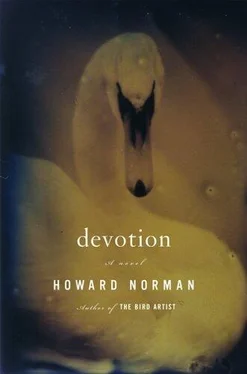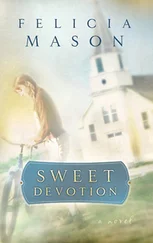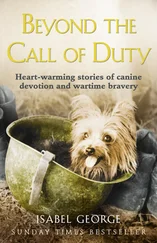“I am married, Katrine. I married Margaret.”
“I’m happy for you. I’m not happy for you.”
“I understand.”
“Really? In your letter you wrote you hope to be married, but no letter after said you were married. That would have been useful, David.”
Katrine opened her small travel bag, took out a stack of photographs held together by a rubber band. She threw them at David, hitting him in the chest. They scattered on the floor. David leaned over and picked them up. “All these you took of me. I looked at them over the past months, my copies you gave me. They are every possible fucking cliché of Prague, every kind of not-original shit, David. Katrine at Kafka’s grave. Katrine at the Jewish cemetery. Katrine in this garden, Katrine in that beer hall. My God, what I let you turn me into. The city I was born in!”
“You came all this way to tell me I’m a second-rate photographer?”
“That would only be kind. No, I’m saying — and it’s just like you not to see it. I am saying you took photographs which associated me with predictable surroundings. Is this over your head? Maybe it is. So, it occurred to me you all along felt I was part of predictable life. Still, I liked spending time with you, David, even some of the nights. Some of them, my friend.”
“I—”
“Let me ask you something. Did you tell your Margaret about me? Did you tell this new wife about me? If you didn’t, perhaps somewhere deep down you haven’t really left me yet. Though don’t flatter yourself, it wouldn’t matter.”
“No, I didn’t feel any need to tell her.”
“Need. Want. Hope. All such bullshit. You know what I always thought? All those talks we had, when you spoke all that — how to say it? Self-deprecation. See, I’m not a translator for nothing, huh? I found the right word. All that self-deprecation you like so much, David. I’ve concluded it’s all actually a form of self-regard, ‘the wonder of me’ bullshit.”
“We had a lot of good conversations, Katrine. Come on, they weren’t all—”
“I think what I think.”
Katrine smoked and David stared off at the wall, out the window. “You know,” she said, “just now, I feel in my stomach it was bad fortune to see you again. Maybe a mistake. Except it was important to me — and my boyfriend Pavel agreed, by the way. Important to me to not send you a letter, but to look at your face. Not be the coward with a letter.”
“There’s probably a flight to Prague tonight.”
“No, I’m going to look at London a day or two. I thought it might take that long to find you. I have a room elsewhere.”
“I’m sorry you came all this way, Katrine. I meant well with my letter.”
“How can such a letter mean well? An idiot would say such a thing.” She reached into her purse again, took out David’s letter, along with other sheets of paper with Czech writing on them. “By the way, I’m publishing my translation of your letter to me.”
“What are you talking about?”
“Look.” She held up the Czech pages. “Yes, I got back to writing stories, like I used to before I started translating. A few editors asked if I had anything. This inspired me to try again. So, I took much of the summer to work on a story. A very good journal has accepted it. I was paid for it. Pavel likes it very much. It’s about a man and woman who fall in love, then fall hard out of it; his name is David Kozol. Hers is not Katrine. Anyway, she finally — how do you say it? Dumps this David. But he cannot take it, so he writes a letter — this is your letter to me, word for word. I translated it out on my typewriter. He shows all his friends this letter, to try and prove he is a very reasonable, nice man. They all never wish to see him again. That’s my ending. It should be published soon. December, I think.”
“You can’t be telling me the truth, Katrine.”
“Maybe yes, maybe no — what difference? You can’t read it anyway. Unless you pay me to translate it.”
They sat through Katrine’s smoking another cigarette. David ordered a glass of whiskey, then a second. Katrine drank a vodka. They didn’t speak much at all. At last Katrine said, “I think you can’t be too sad to see me, David. Because why? Because you haven’t got up to go to your room, have you?”
“Neither sad nor happy, Katrine. Just taken aback.”
“Know what I am? I am tired and hungry. How about it, David, dinner with an old friend? I will telephone my Pavel and tell him I’m having dinner with you. He’ll appreciate that I told him.”
“I don’t think dinner’s a good idea.”
“I hate good ideas. You know this about me.”
David smiled at her familiar contrariness.
“I’m hungry, too, I suppose. Dinner, then you’ll get a cab to your hotel, right?”
She went to the telephone booth in the hallway and called Pavel. He was a doctor. She reached him at his office. After describing how she’d “looked David Kozol in the eye,” she said, “It’s nothing, really. It’s only dinner.” Pavel told her that he had a patient waiting; that he loved her; that he would pick her up at the airport, just let him know when.
They took a table near the window. “The truth is, David, you were so seldom in Prague,” she said. “And I never came to London. I never suggested I visit you in London. You never asked. This not asking went on for four years, almost.” The waiter came to the table. Katrine said, “Your best Italian Chianti, please.” The waiter nodded approval and went into the kitchen. When the wine was poured, Katrine clinked her glass against David’s, said, “To old times. Means, we tried each other out and lived to tell the tale, yes?” But they didn’t tell any tales, not really. They ate in pretty much a comfortable silence. They shared a second bottle. No dessert. “Coffee in your room, my friend, David,” Katrine said. “Then I’ll get my taxicab.”
“Katrine, how about coffee in the bar?”
“Be polite, David. I traveled a long ways to say goodbye in person. I’ll say it over coffee, then get my cab.”
In his room, Katrine sat on the sofa, David in the chair opposite her. A bottle of wine, compliments of the hotel, sat on the glass-topped table in between. Katrine opened it, poured them each a glass. Room service delivered a pot of coffee. They didn’t pour any yet. On they talked. What about, David, only a day later, couldn’t remember. Mostly, increasingly drunken non sequiturs. They dozed off, startled awake, the room a kind of emotional purgatory; neither was particularly animated; no buttons got unbuttoned; they eventually fell asleep. David in the chair, Katrine on the sofa. Yet here was the thing, of course: the fact of Katrine’s being in David’s hotel room — the fact from which every consequent form of collapse emanated — meant David had dropped Maggie’s trust, whether she ever found out about it or not. True, the evening constituted David and Katrine’s final parting of ways, but it had taken place after his marriage to Maggie. This chronology offered its own judgment.
The hotel room, with its metallic-tasting water, a pocket of rust somewhere along the pipes, nicely appointed as it was.
William knocked on David’s door at 7:55 in the morning. This was August 19, the day William had his noon appointment with Reginald Aston, royal swankeeper. Katrine heard the knock just as she stepped from the shower. She’d felt grubby and hung over — disgusting, really — but was in fairly good humor. She’d put on the plush terrycloth robe provided by the hotel and opened the door. William was dressed in a brown corduroy sports jacket with elbow patches, a white shirt, khaki trousers, sensible walking shoes. He was holding a small gift-wrapped package. Katrine held open the door and said, “Yes?”
Читать дальше












